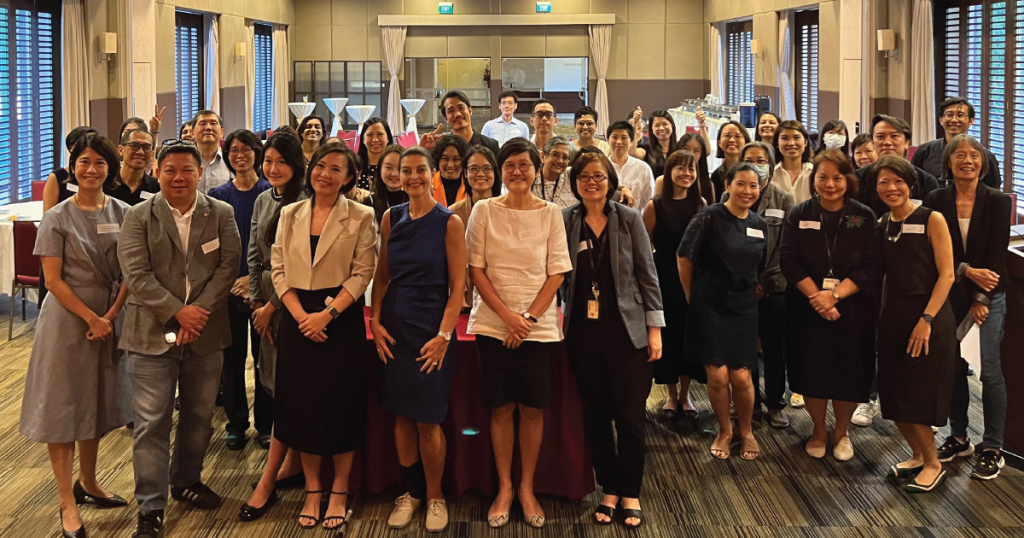
2023 will be an exciting year for Singapore’s information and technology (IT) industry as the city-state aims to solidify its position as a regional technology hub. As such, here are 5 key trends to take note of that will shape the IT industry in 2023, so that you can be better positioned to capitalize on the industry’s exponential growth.
Trend 1: Digitalization as a key driver for the IT industry
Digital transformation has accelerated the ability for companies to break down physical boundaries as well as increase team engagement, and collaboration. To further achieve such outcomes, companies will place increasing emphasis on digitization, process improvement, and system automation.
To illustrate this point, the Jobs Transformation Maps (JTMs) launched by Workforce Singapore in 2022, highlights that Internet of things (IOT) and analytics will be of particular importance in propelling Singapore to be a greater worldclass, techdriven city-state.
In addition to this, Singapore’s Smart Nation initiative is another indicator of the push to harness technology to transform how “people and businesses live, work and play.”
With this, it can be expected that specific roles in IT will grow in demand.
Trend 2: Roles in AI and data analytics will grow in importance
Some in-demand roles lie in the domain of AI and data analytics. Given the increased emphasis on digitalization, roles in AI engineering, SAP, data science, full stack development, and development operations will become increasingly important.
Furthermore, the Covid-19 pandemic has brought to surface the uncertainty and complexity of the global economy. The meteoric push for digitalization revolves around company pressure to manage supply chains effectively, as well as the necessity for organizations to adapt fast in a volatile, uncertain, complex, and ambiguous (VUCA) environment.
A sure way to remain adaptable, is through integrating systems and processes into businesses’ day-day operations; which explains the heightened demand for the roles stated above, given that they have a direct impact in building said systems which ultimately gives companies the visibility and control needed to stay ahead of the curve.
The JTMs affirm this point by highlighting an increased demand for workers with skills in software engineering, cloud and mobility, as well as AI and analytics.
Trend 3: Coding skills continue to remain a necessity
According to a report by Singapore’s National Trades Union Congress (NTUC) LearningHub, a significant majority (84%) of employers agree that there is an increasing need for employees across various functions to acquire foundational coding skills.
In terms of domain-specific knowledge in the sphere of software engineering, Adecco Singapore’s IT recruitment desk states that JavaScript, C, and Python remain a necessity to develop the software and tools needed for companies to further automate their systems and accelerate transition in digitalization.
Trend 4: IT roles in the financial services industry will grow steadily in number
The industry transformation map (ITM) 2025 lays out the government’s vision for Singapore to be a leading financial center in Asia. Speaking at its launch in 2022, Deputy Prime Minister Lawrence Wong projected an average 4-5% annual growth for the financial services sector.
As such, according to GovInsider Asia, there will be an increased importance in IT roles within the financial service sector to:
- Digitize financial infrastructure and facilitate digital platform development (especially for the bond markets and funds industry)
- Catalyze the net-zero transition for Asia
- Grow the domain of sustainable finance
- Increase the enablement of cross-border payment linkage and digital currency connectivity to effectively shape the future of financial networks
The Monetary Authority of Singapore (MAS) chief Ravi Menon highlighted that in 2022 alone, more than 3,000 new IT roles in the financial services sector were offered, reflecting the demand for IT talent.
With Singapore targeting to add as many as 20,000 new jobs within the sector over the next five years, the increase in demand for IT roles will continue to be pertinent.
Trend 5: Cybersecurity will be at the forefront of financial services IT
That said, the increased emphasis on growing Singapore’s financial services sector does not come without challenges – with a critical challenge revolving around cybersecurity.
Vincent Loy, Assistant Managing Director of MAS’s technology group states that cyber risks are becoming of increasing concern with the third party service adoption by financial institutions for critical functions. To ensure the success of ITM’s roadmaps, a robust and secure digital infrastructure is necessary.
As such, cybersecurity will remain a top priority, and those specialized in cloud security, application development security and network security will be well positioned to capitalize on the increased demand for cybersecurity skills.
Get a head start with Adecco
The employment landscape can be hard to navigate. We get it. It is important to be familiar with recruitment trends and know your market worth, even if you aren’t looking for new opportunities. At Adecco, we journey with you from beginning to end – understanding your motivations and identifying bestfit market opportunities so that you can achieve your long-term career goals.










